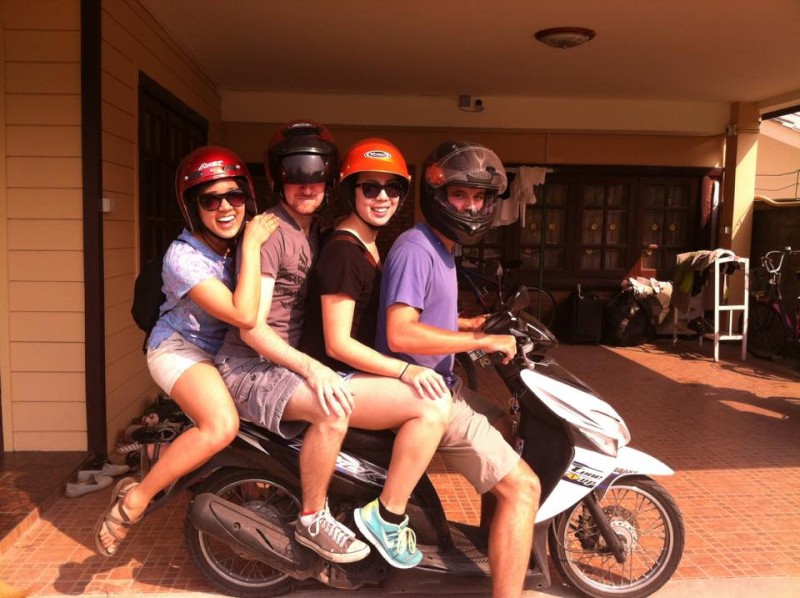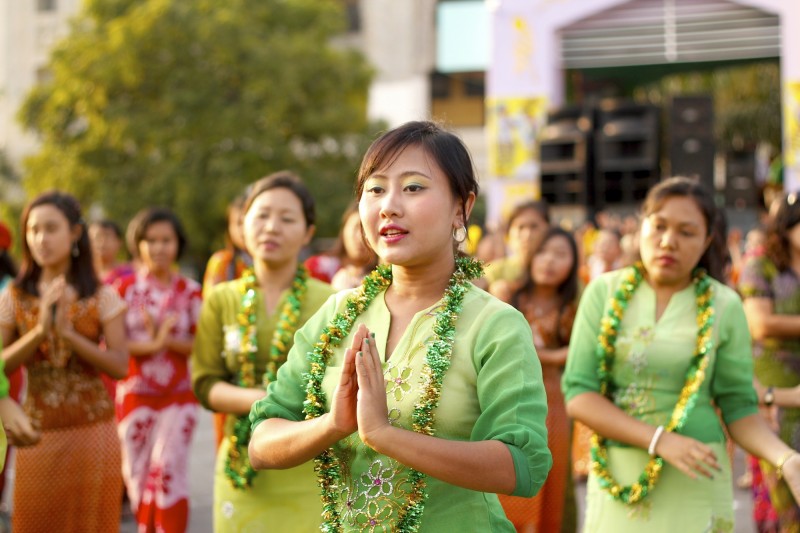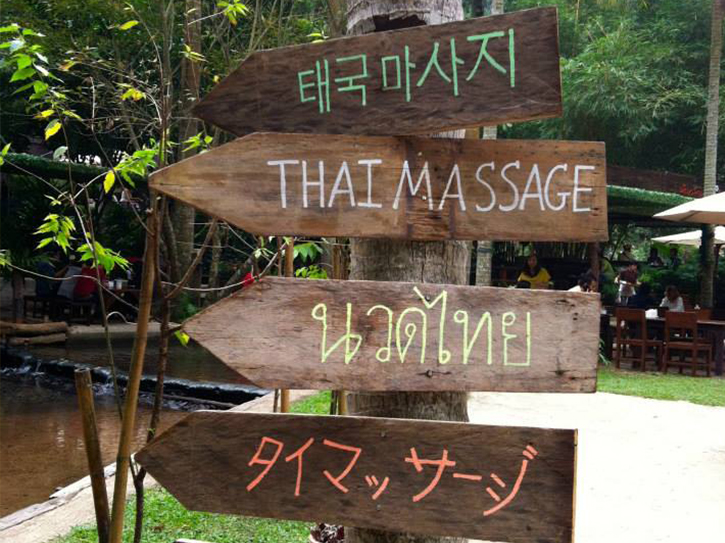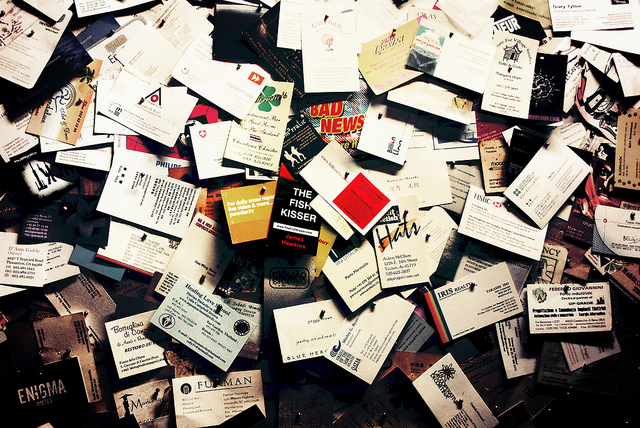
Tip #1: Dress the part
Fashion norms both inside and outside the office can vary throughout Thailand, with important differences between the smaller towns and the cities (the latter is less conservative, but modesty remains a general rule). In an academic or more traditional setting like a school or bank, skirts and covered shoulders are a must. Although traditional Thai formal clothing for women includes floor length skirts, shorter skirts are fine anywhere outside of a smaller village, including skirts above the knee. In Bangkok, you’ll see runway ready looks and bolder choices, especially among those working at the more fashion-forward industries. Cleavage, however, is nowhere to be found. When in doubt, formal and conservative is best.
It’s a good idea to…
At many offices, you will be expected to take your shoes off at the door so have a pair of slippers in your bag. Also, if you have socks or pantyhose on, make sure that they’re in good condition.

Tip #2: Avoid being late
Although many people joke about ‘Thai time’ and everyone is always a few minutes late, you will not get the same leeway as Thai colleagues if you are late for a meeting. To avoid causing offense, be on time. Since addresses can Thailand can be a bit ambiguous, here are a few tips to get you to the right place right on schedule.
Main roads get referred by the name, like Sukumvit and Silom, while the small side alleys jutting out of these roads are called sois. When telling your cab driver where you’re heading, referring to a soi is clearer than just giving the street name and address number.
Do a test run if you have time to see if you’ll need a bus or motorcycle taxi for the last leg of your trip. While the Bangkok Mass Transit System (the BTS skytrain) is convenient, you might need to catch a bus or motorcycle taxi to complete your commute. You would have seen the latter zipping around with their neon orange vests, gliding past mile-long traffic jams, transporting passengers in half the time of regular taxis. Motorcycle taxis, or ‘motorcy’ in Thai, leave from informal stands near BTS and bus stations. Simply tell the driver where you’d like to go and glance at the price board at the stand to avoid any ‘foreigner prices’.
It’s not illegal to go without a helmet as a passenger, but feel free to ask your driver if he has a spare. Chances are he’ll let you borrow one. If you have the courage, you’ll want to sit ‘side saddle’ if you’re in a skirt and avoid bumping into the driver during the ride.
There’s an additional benefit to hailing a motorcy. Julia, a businesswoman from Austria and long-time Bangkok visitor, says, “In the humidity of Bangkok, the motorcy is a friend to your hair. Unless your destination is less than a five-minute walk from the BTS, take a motorcycle to avoid the frizz and show up looking as nice as when you left. “
It’s a good idea to…
Drivers will not know how to find a location based only on the written postal address. When scheduling a meeting, ask for the closest street intersections and some markers to help you determine where along the soi the office is, and then try to use that information to locate the address on Google Maps before leaving. Since there aren’t any user-friendly mobile apps with a map of Bangkok in English, save an offline Google map to use if you don’t have a Thai cell phone plan with data.

Tip #3: Mastering the ‘wai’
The wai is the traditional Thai greeting and involves bowing over with your palms placed together. The Thais wai as a sign of respect and to give a warm, traditional greeting to familiar friends, new acquaintances and business partners. As foreigner, it’s expected that you learn how to wai correctly, especially in business settings where the wai demonstrates respect for both the person and their culture. You should wai when meeting people in the office and when introduced to new friends. By following a few simple rules and mimicking those around you, you’ll be wai-ing in no time.
To wai, place your palms together at sternum level with your fingertips just under your chin and bow slightly forward while keeping your hands straight up. When wai-ing someone older or in a higher position socially or professionally, you should move your hands up higher (fingertips at nose level). The higher your hands, the more respect you’re aiming to show. But! Don’t go too high because only royalty and highly ranked monks receive the highest form of the wai.
It’s a good idea to…
You should always wai when meeting someone older or in a higher position than you. It is also polite to wai back when someone wais to you first. You’ll often say hello (sah-wat-dee-ka) while wai-ing. When in doubt¸ just follow their lead!

Tip #4: Gift giving
Giving and receiving gifts are an important part of forming relationships in Thailand. It’s always a good idea to bring a gift from your home country to share at the beginning of a long term partnership. For more casual meetings, a gift is not necessary. If you’re bringing food, make sure that you have enough to share with all of the participants of the meeting. Bringing a sweet treat is a great way to join in the communal food culture that makes meals in Thailand so enjoyable.
It’s a good idea to…
Stick to sweets and fruits and other shareable food items. Small tokens or souvenirs from back home are fine if you’ve brought enough for everyone participating in the meeting but you don’t want to get caught off guard if more people attend the meeting than anticipated.
If your gift is particularly significant or meant to show appreciation for something specific (such as at the end of a partnership), wrap it in bright colored paper like gold and yellow, or red for Chinese-Thai business partners; take care to ensure the wrapping looks professional and use ribbons and bows for a special finish. Avoid giving flowers, as these are often used at funerals or specifically for religious offerings.

Tip #5: Challenging the status quo and dealing with conflict
Hierarchy matters in Thailand; it guides social norms and interactions, and is an integral component of the socio-cultural system. In Thailand, the culturally-important notion of never ‘losing face’ also brings with it the responsibility to protect others from losing face as well.
Asking questions during a company meeting to seem engaged? This could imply that your boss hasn’t explained something well enough. Correcting a mistake in front of multiple people? You’ve just caused a loss of face for whoever you’re correcting.
In general “nudge, but don’t push” and really, don’t ‘nudge’ until after you’ve established a good relationship and built trust. ‘Nudging’ a boss? Think about whether or not it will be worth it. If you do, use tact and be genuine to avoid any miscommunication.
It’s a good idea to…
Khun Un, a lecturer at Chiang Mai University shares this tip for when an argument might be unavoidable: “The words ‘mai pen rai’ which means ‘it doesn’t matter’ apply even during conflict. At least one person should try to compromise and reduce the tension. Being humble in meetings is important in Thai business culture, and arguments can be eradicated via polite discussions.”

Tip #6: How to give and receive business cards
When meeting someone older, it’s polite to wait for them to offer their business card to you first. Take a quick glance at the card you’ve received and feel free to share a thoughtful comment about their firm. Only then should you offer your business card in return. When accepting the card in a formal setting, use both hands; the same goes for when handing them out.
It’s a good idea to…
To always keep professionally printed business cards on hand. While Google calendar has long replaced the paper planner, here business cards are no thing of the past. You never know when you’ll meet someone and need to make a new connection.
![]()
More from Zafigo:
50 new reasons to love Bangkok
Playing it safe on the road: Tips for women business travellers
Get all the latest travel updates from Zafigo. Follow us on Facebook, Twitter, and Instagram.